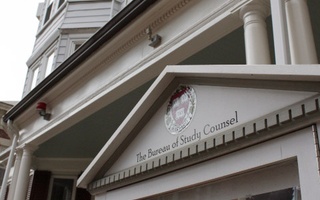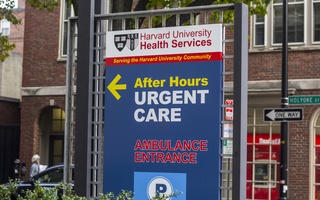Undergraduates expressed concerns and confusion on Thursday over the planned closure of the University’s 24-hour inpatient facility Stillman Infirmary, even as University Health Services officials released more details about the restructuring in health services slated to take effect next semester.
The Crimson first reported on Tuesday night that the facility would shutter amid broader service changes at UHS. On Thursday, UHS Director Paul J. Barreira wrote in an email to the student body that UHS decided curtail urgent-care hours in order to expand same-day appointments and counseling and mental health services. According to the email, UHS’s overnight services are “underutilized,” with less than 250 students per year admitted overnight to Stillman.
{shortcode-80c0d50ceacd776ff98fe2b0113cb7010de68e78}
Other changes will accompany the curtailed hours. In addition to a phone triage system as an alternative to Stillman’s late-night urgent care, UHS will start to provide “home visits” to students during business hours and increase its support to patients who are transferred to other facilities. Health Services also plans to offer same-day urgent-care online appointment bookings and to expand availability of same-day visits during peak daytime hours, Barreira told The Crimson in an email on Thursday.
Pro Ambulance EMTs will assess intoxicated students and transport them to Mt. Auburn Hospital for further treatment if necessary. Intoxicated students previously had the option of being walked to Stillman. These changes will not alter Harvard’s alcohol amnesty policy, Barreira clarified.
Student leaders and groups related to student health, such as Drug and Alcohol Peer Advisors, said that they had been told that changes to health services were coming in recent weeks.
Although UHS had planned to discuss the changes with “those in the community who would be most affected by the change” before the announcement was made publicly, only DAPA, the Undergraduate Council leadership, House Masters, and Resident Deans had been notified at the time The Crimson reported the story, Barreira wrote in his email to The Crimson.
Gurbani Kaur ’17 said that the problematic nature of these changes did not just lie in the specific changes made, but also in the “assumption…that the best thing to do is to focus on daytime services.”
Kaur, who is a member of HealthPALs, a liaison group between UHS and students, said she had learned of these changes through The Crimson and would have liked a conversation between healthcare professionals and the student body before the changes were adopted.
“We’re supposed to trust health care providers, or UHS, but how can we trust health professionals if they don’t trust us to know our needs?” she said.
In the email, Barreira said the decision was made after careful consideration by a task force he had convened to “review the above challenges, analyze data, and evaluate the current system for providing overnight services.” The task force was composed of representatives from various UHS departments.
Kara J.W. Lessin ’16, a peer counselor, said that she did not think alternatives to care at Stillman were suitable, particularly in addressing mental health issues.
“In terms of mental health, triaging has historically not worked too well,” she said. She added that others might be less likely to seek help because they’re unwilling or uncomfortable with going to other services, such as Mount Auburn Hospital.
Lessin, who declined to comment on the record about which peer counseling group she belonged to due to concerns regarding confidentiality, said peer counselors currently accompany students who may be a danger to themselves to Stillman with their permission. These service changes, she said, may prompt changes to her peer counseling group’s policy.
If a student with mental health concerns is determined to need a respite bed after contacting the phone triage number, the issue will be discussed with the student’s Resident Dean, Barreira wrote. He added that UHS is currently discussing with Mount Auburn Hospital the possibility of having respite beds available for Harvard students.
Read more in College News
UC Candidates Criticize Council, Administration at DebateRecommended Articles
-
A Mental Health Reality CheckIt is impossible to know, of course, but I am not sure I would still be alive today if it hadn’t for the mental health treatment I received at Harvard.
-
ACA Has Little Impact on University Health Plan EnrollmentBarreira noted in his email that since UHS does not ask for the reason why a student elects to waive the Student Health Insurance Plan, it is difficult to know how the Affordable Care Act impacted that decision.
-
The Trouble with TriageHUHS should focus on fostering an atmosphere based on trust, not triage.
-
 Bureau of Study Counsel To Move Under College's Purview
Bureau of Study Counsel To Move Under College's Purview -
 Stillman Closed, Health Services Will Open Renovated Space
Stillman Closed, Health Services Will Open Renovated Space













